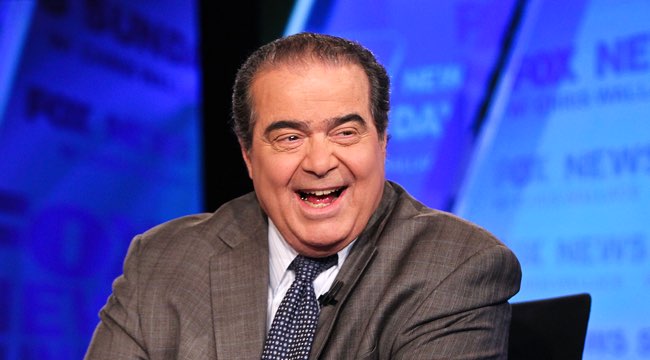
During an affirmative action case before the U.S. Supreme Court, Justice Antonin Scalia made some questionable statements about African-American college students. The case, Fisher v. University of Texas at Austin, involves a white woman who was not admitted to the college. She asserts the unconstitutionality of using race as an admissions factor. Abigal Fisher claims she was rejected because she’s white, and the University of Texas says she simply wasn’t qualified.
Fisher did not graduate in the top 10 percent of her class, so she did not qualify for automatic entry with the university’s guaranteed admission plan. Time summarizes the program whereby three quarters of applicants enter:
Texas has a unique admissions policy known as the Top 10 Percent Plan, in which the highest-ranked students at every high school are automatically admitted into a public university. The plan was designed to increase representation of minorities and low-income students, made possible, in part, by the fact that the state’s high schools remain largely segregated.
The case, which originated in 2008, hinges on the remaining quarter of applicants, who are admitted through a “holistic” evaluation (one of the considered factors is race). This case was previously heard in 2013 by the Supreme Court, which remanded the matter to a lower court that ruled in the university’s favor. The case returned on Wednesday, and the proceedings included some eyebrow-raising words from Scalia:
“There are — there are those who contend that it does not benefit African-Americans — to get them into the University of Texas where they do not do well, as opposed to having them at a slower-track school where they do well. One of — one of the briefs pointed out that — that most of the — most of the black scientists in this country don’t come from schools like the University of Texas.
“They come from lesser schools where they do not feel that they’re being pushed ahead in classes that are too fast for them I’m just not impressed by the fact that the University of Texas may have fewer. Maybe it ought to have fewer. And maybe some — you know, when you take more, the number of blacks, really competent blacks, admitted to lesser schools, turns out to be less.”
“Maybe it ought to have fewer…” arrives from Scalia, whose voting record already reflects a strong bias against affirmative action. The opinion on this case will be one to watch.
(Via SupremeCourt.gov and Time)
